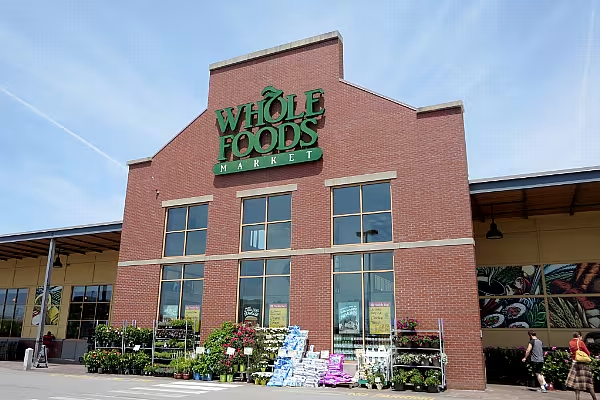One of Whole Foods Market Inc.’s largest shareholders has met with potential activist investors to discuss making sweeping changes to the upscale grocery chain, including replacing management and exploring a sale of the company, people with knowledge of the matter said.
The shareholder, among the company’s 10 biggest, raised its concerns in recent meetings with activist investment funds after losing patience with the company’s direction, said the people, who asked not to be identified because the process is private. The investor cited Whole Foods’ poor inventory and vendor management, high costs and failure to make the most of its unique appeal to millennial shoppers among the key issues.
Several activist investors, who asked not to be named, said they are aware of the shareholder’s suggestions and are studying Whole Foods carefully. It’s unclear if any has begun accumulating a position in the Austin, Texas-based company, which has a market value of about $8.9 billion.
“Whole Foods Market values the strong and open relationships we have with our shareholders,” Brooke Buchanan, a spokeswoman for the company, said in an e-mail Friday. “As discussed on Wednesday’s earnings call, we are focused on pursuing the right strategies to position the company to produce strong results and returns for our shareholders over the long term.”
Shares of Whole Foods rose 2.7 percent to $29.22 at 12:42 p.m. in New York after being temporarily halted. The stock has suffered a steep decline, falling by half from a 2015 high of $57.20.
The company said Wednesday it will end its longstanding practice of having dual chief executive officers, naming co-founder and co-CEO John Mackey to serve as sole CEO starting Dec. 31.
Larger mainstream grocers, including Kroger Co. and Wal-Mart Stores Inc., continue to advance on Whole Foods’ organic turf, weighing on sales. Kroger has a market value of about $29 billion and Wal-Mart is valued at about $214 billion. Whole Foods is trying to fight back by offering more discounts and starting a new chain aimed at younger shoppers.
Organic products have become widely available at U.S. stores, often at lower prices than Whole Foods offers. Food deflation hasn’t helped the company, as other retailers slash prices amid falling costs for items like beef and eggs.
Whole Foods has said its new chain, called 365, will add to 1,200 conventional stores it already plans to build. That forecast was issued in 2013, shortly after the stock reached its all-time high of $65.24. Analysts have since questioned whether there’s capacity for more high-end organic grocers in the U.S.
News by Bloomberg, edited by ESM. To subscribe to ESM: The European Supermarket Magazine, click here.














